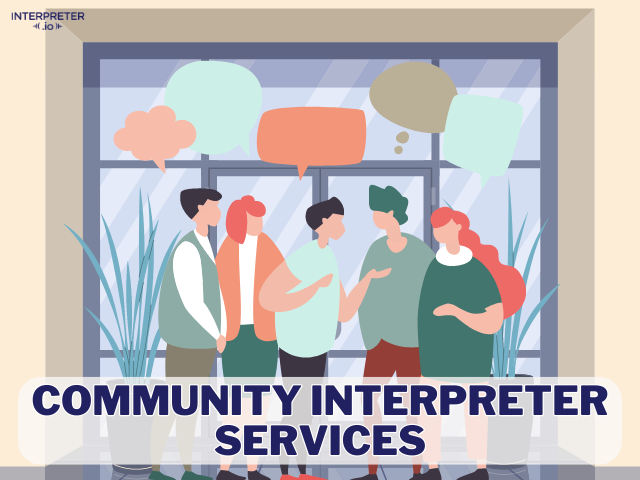Enhancing US Communication with Deaf Interpreter Services
 Communication difficulties can affect many areas of daily life for the hearing-impaired community, from casual conversations to critical interactions in medical and legal settings.
Communication difficulties can affect many areas of daily life for the hearing-impaired community, from casual conversations to critical interactions in medical and legal settings.
Deaf interpreter services play an essential role in overcoming these barriers. They ensure that deaf individuals can express themselves clearly and engage fully in various aspects of life. These services also contribute to creating a more inclusive and accessible community for everyone.
The work of deaf interpreters is a vital step toward breaking down barriers and building better communication for all.
Community Interpreter Services: Facilitating Local Engagement
 Language plays a crucial role in cultural identity across the globe. As technological advancements foster more global connections, the interaction between diverse groups and their cultures intensifies.
Language plays a crucial role in cultural identity across the globe. As technological advancements foster more global connections, the interaction between diverse groups and their cultures intensifies.
This growing exchange highlights the need for interpreters, who help people speaking different languages understand each other. The variety of languages across cultures often creates significant communication barriers. Interpreters play a crucial role in overcoming these obstacles, enabling smoother interactions and fostering better relationships among communities.
5 Benefits of Legal Interpreting Services for Your Law Firm
As our world grows closer through culture and commerce, the importance of clear communication across different languages and cultural backgrounds becomes dominant, especially in the legal sector.

Legal interpreting services are crucial in enabling law firms to communicate effectively with clients, witnesses, and legal experts who speak a variety of languages.
Here are five compelling reasons to integrate legal interpreting services into your law firm's offerings:
Advantages of Investing in Professional Interpretation Services

When businesses work across different countries, clear communication is key. Language barriers can cause misunderstandings, slow down deals, and create challenges. This is where professional interpreters help.
Interpreters ensure people from different languages understand each other clearly, making meetings, calls, and events run smoothly. This is particularly important in industries like healthcare, law, technology, and international trade, where language interpretation plays a critical role in maintaining accuracy and avoiding costly errors.
Professional interpretation services make it easier to connect, solve problems, and build strong partnerships in a global market.
Phone Interpreter Services: Your On-Demand Language Solution

Being able to communicate across languages is essential in the United States, where many people speak different languages. Businesses, hospitals, courts, and individuals often need to connect with someone who doesn’t speak their language.
Phone interpreter services make this possible by providing real-time interpretation. They help break down language barriers and ensure clear and accurate communication in critical situations like healthcare or legal proceedings. Services like these play a key role in the broader field of language interpretation, which facilitates communication across linguistic divides.
